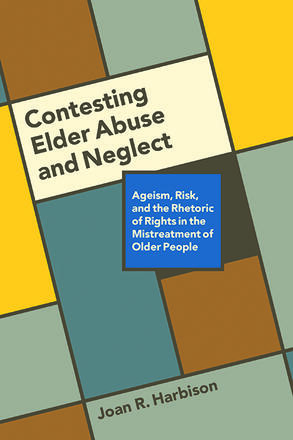
Contesting Elder Abuse and Neglect
Ageism, Risk, and the Rhetoric of Rights in the Mistreatment of Older People
Drawing on twenty years of original, interdisciplinary research, Contesting Elder Abuse and Neglect explores how and why the mistreatment of older people became known as “elder abuse and neglect” and the consequences of this designation.
Description
The mistreatment of diverse older people in varying ways is categorized in many societies as “elder abuse and neglect,” yet this concept has not been subjected to rigorous critical inquiry. Instead, it has most often represented the interests of professionals, academics, and governments, while policy makers and researchers frequently disregard the complexity of issues that fall under the designation. The first comprehensive, scholarly critique of the topic, Contesting Elder Abuse and Neglect is an important, much-needed contribution that encourages new thinking, policies, and action regarding the treatment of older people.